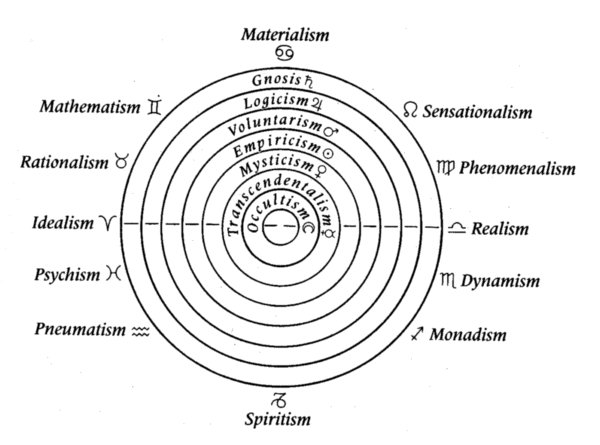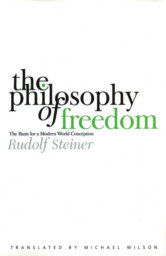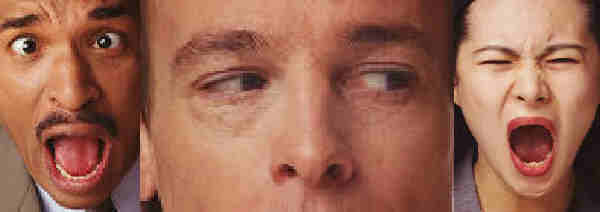
Chapter 8, The Factors of Life
8-0) MOOD OF GNOSIS (Saturn)
[1] Let us recapitulate what we have achieved in the previous chapters. The world faces man as a multiplicity, as a mass of separate details. One of these separate things, one entity among others, is man himself. This aspect of the world we simply call the given, and inasmuch as we do not evolve it by conscious activity, but just find it, we call it percept. Within this world of percepts we perceive ourselves. This percept of self would remain merely one among many other percepts, if something did not arise from the midst of this percept of self which proves capable of connecting all percepts with one another and, therefore, the sum of all other percepts with the percept of our own self. This something which emerges is no longer merely percept; neither is it, like percepts, simply given. It is produced by our activity. To begin with, it appears to be bound up with what we perceive as our own self. In its inner significance, however, it transcends the self. To the separate percepts it adds ideally determined elements, which, however, are related to one another, and are rooted in a totality. What is obtained by perception of self is ideally determined by this something in the same way as are all other percepts, and is placed as subject, or "I", over against the objects. This something is thinking, and the ideally determined elements are the concepts and ideas. Thinking, therefore, first reveals itself in the percept of the self. But it is not merely subjective, for the self characterizes itself as subject only with the help of thinking. This relationship in thought of the self to itself is what, in life, determines our personality. Through it we feel ourselves to be thinking beings. This determination of our life would remain a purely conceptual (logical) one, if no other determinations of our self were added to it. We should then be creatures whose life was expended in establishing purely ideal relationships between percepts among themselves and between them and ourselves. If we call the establishment of such a thought connection an "act of cognition", and the resulting condition of ourself "knowledge", then, assuming the above supposition to be true, we should have to consider ourselves as beings who merely cognize or know.
8-1) MATERIALISM (Cancer)
[2] The supposition is, however, untrue. We relate percepts to ourselves not merely ideally,
through concepts, but also, as we have already seen, through feeling. We are, therefore, not
beings with a merely conceptual content. The Naïve Realist holds that the personality actually
lives more genuinely in the life of feeling than in the purely ideal element of knowledge. From
his point of view he is quite right in interpreting the matter in this way.
8-2) SPIRITISM (Capricorn)
To begin with, feeling is exactly the same, on the subjective side, as the percept is on the
objective side. From the basic principle of naïve realism --that everything that can be perceived is
real -it follows that feeling must be the guarantee of the reality of one's own personality.
8-3)REALISM (Libra)
Monism, however, as here understood, must grant the same addition to feeling that it considers
necessary for percepts, if these are to stand before us as full reality. Thus, for monism, feeling is
an incomplete reality, which, in the form in which it first appears to us, does not yet contain its
second factor, the concept or idea. This is why, in actual life, feelings appear prior to knowledge.
8-4) IDEALISM (Aries)
At first, we have merely a feeling of existence; and it is only in the course of our gradual
development that we attain to the point at which the concept of self emerges from within the dim
feeling of our own existence. However, what for us appears only later, is from the first
indissolubly bound up with our feeling.
8-5) MATHEMATISM (Gemini)
This is why the naïve man comes to believe that in feeling he is presented with existence
immediately, in knowledge only mediately. The cultivation of the life of feeling, therefore,
appears to him more important than anything else.
8-6) RATIONALISM (Taurus)
He will not believe that he has grasped the nexus of the world until he has received it into his
feeling. He attempts to make feeling, rather than knowing, the instrument of knowledge.
8-7) PSYCHISM (Pisces)
Since a feeling is something entirely individual, something equivalent to a percept, the
philosopher of feeling is making a universal principle out of something that has significance only
within his own personality. He attempts to permeate the whole world with his own Self. What the
monist, in the sense we have described, strives to grasp through concepts, the philosopher of
feeling tries to attain through feelings, and he regards this kind of connection with the objects as
the more direct.
8-8) PNEUMATISM (Aquarius)
[3] The tendency just described, the philosophy of feeling, is often called mysticism. The error in
a mystical outlook based upon mere feeling is that it wants to experience directly what it ought to
gain through knowledge; that it wants to raise feeling, which is individual, into a universal
principle.
[4] Feeling is a purely individual affair; it is the relation of the external world to our self as
subject, in so far as this relation finds expression in a merely subjective experience.
8-9) MONADISM (Sagittarius)
[5] There is yet another expression of human personality. The Self, through its thinking, shares
the life of the world in general. In this manner, in a purely ideal way (that is, conceptually), it
relates the percepts to itself, and itself to the percepts. In feeling, it has direct experience of a
relation of the objects to itself as subject. In the will, the case is reversed. In willing, we are
concerned once more with a percept, namely, that of the individual relation of our self to what is
objective. Whatever there is in willing that is not a purely ideal factor, is just as much mere
object of perception as is any object in the external world.
8-10) DYNAMISM (Scorpio)
[6] Nevertheless, the Naïve Realist believes here again that he has before him something far
more real than can be attained by thinking. He sees in the will an element in which he is
immediately aware of an occurrence, a causation, in contrast with thinking which only grasps the
event afterwards in conceptual form. According to such a view, what the I achieves through its
will is a process which is experienced immediately. The adherent of this philosophy believes that
in the will he has really got hold of the machinery of the world by one corner. Whereas he can
follow other occurrences only from the outside by means of perception, he is confident that in his
will he experiences a real process quite immediately. The mode of existence in which the will
appears within the Self becomes for him a concrete principle of reality. His own will appears to
him as a special case of the general world-process; hence the latter appears as universal will. The
will becomes the world-principle of reality just as, in Mysticism, feeling becomes the principle of
knowledge. This kind of theory is called the philosophy of will (thelism). It makes something that
can be experienced only individually into the fundamental factor of the world.
8-11) PHENOMENALISM (Virgo)
[7] The Philosophy of Will can as little be called scientific as can the Mysticism based on
feeling. For both assert that the conceptual understanding of the world is inadequate. Both
demand a principle of existence which is real, in addition to a principle which is ideal. To a
certain extent this is justified. But since perceiving is our only means of apprehending these so-called real principles, the assertion of both the Mysticism of feeling and the Philosophy of Will
comes to the same thing as saying that we have two sources of knowledge, thinking and
perceiving, the latter presenting itself as an individual experience in feeling and will. Since the
results that flow from the one source, the experiences, cannot on this view be taken up directly
into those that flow from the other source, thinking, the two modes of knowledge, perceiving and
thinking, remain side by side without any higher form of mediation between them. Besides the
ideal principle which is accessible to knowledge, there is said to be a real principle which cannot
be apprehended by thinking but can yet be experienced. In other words, the Mysticism of feeling
and the Philosophy of Will are both forms of naïve realism, because they subscribe to the
doctrine that what is directly perceived is real. Compared with Naïve Realism in its primitive
form, they are guilty of the yet further inconsistency of accepting one particular form of
perceiving (feeling or will, respectively) as the one and only means of knowing reality, whereas
they can only do this at all if they hold in general to the fundamental principle that what is
perceived is real. But in that case they ought to attach equal value, for the purposes of
knowledge, also to external perception.
8-12) SENSATIONALISM (Leo)
[8] The philosophy of will turns into Metaphysical Realism when it places the element of will
even into those spheres of existence where it cannot be experienced directly, as it can in the
individual subject. It assumes, outside the subject, a hypothetical principle for whose real
existence the sole criterion is subjective experience. As a form of Metaphysical Realism, the
Philosophy of Will is subject to the criticism made in the preceding chapter, in that it has to get
over the contradictory stage inherent in every form of Metaphysical Realism, and must
acknowledge that the will is a universal world-process only in so far as it is ideally related to the
rest of the world.
~^~
~~~~~~~~~~~~~~~~~~~~~~~~~~~~~~~~~~~~~~~~~~~~~~~~~~~~~~~~~~
To Obtain your own Copy of this Reviewed Book, Click on SteinerBooks Logo below and order a copy of this book.

~~~~~~~~~~~~~~~~~~~~~~~~~~~~~~~~~~~~~~~~~~~~~~~~~~~~~~~~~~
~~~~~~~~~~~~~~~~~~~~~~~~~~~~~~~~~~~~~~~~~~~~~~~~~~~~~~~~~~
 ~~~~~~~~~~~~~~~~~~~~~~~~~~~~~~~~~~~~~~~~~~~~~~~~~~~~~~
~~~~~~~~~~~~~~~~~~~~~~~~~~~~~~~~~~~~~~~~~~~~~~~~~~~~~~




